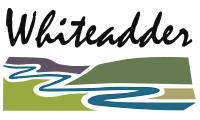‘LOCHIRMACUS, DUNSE, and LANGTON,
POUTERLYNIE, and PISHWANTON ;
KITTLENAKIT, and CORNSYKE–
In ELFHOLE is the devil’s byke.
‘Glossary: ‘Lochirmacus’ = Longformacus, ‘Dunse’ = Duns.
This old local rhyme includes some intriguing placenames, local to the Whiteadder area. Most of these, including Elfhole, are small settlements not far from Duns.
Dr George Henderson (1800-1864), who collected many local rhymes, stories and traditions in the 1800s, asks what anyone would, on hearing this placename: ‘Is Elf-hole, as the name denotes, in any way connected with the Fairy Superstition?’
Elfhole was a farmstead, occupied from medieval times until at least the 1850s. A nearby woodland plantation still has the placename Elphole. The world ‘byke’ means hive in Scots, as in ‘bee’s byke’. So what exactly was a hive of devilish elves doing at a farm just outside Duns?
Henderson’s theory is that the rhyme reflects superstitions relating to fairies. He doesn’t mean the pretty, bottom-of-garden fairies of Victorian children’s books, nor what he terms ‘good neighbours’ like the industrious brownies of Cranshaws. These elves were a subset of fairy that went out of their way to cause harm to humans; they were helpers of the devil. And not only that, there was a hive of them. In Henderson’s words: ‘sometimes they have shown such malignity towards the human race, that they may justly be called the ‘Devil’s imps’; hence a company of them in any place may be a hyke, or hive of the Devil’s emissaries.’
We can’t go back and ask them but it’s fairly safe to presume that whoever wrote this rhyme was not a big fan of the residents of Elfhole. Elfhole now appears as ‘Elphole’ on maps.

